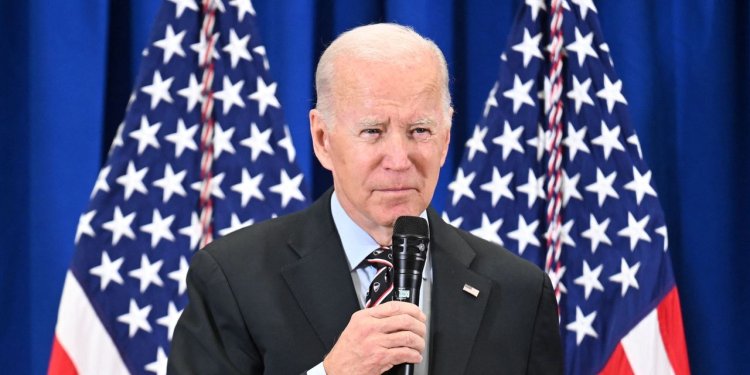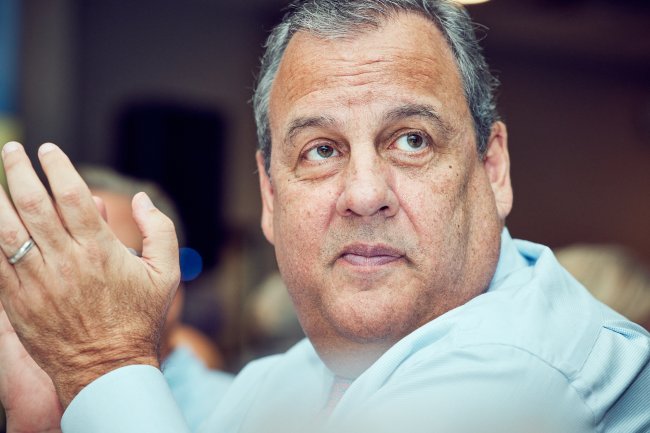U.S. Launches Quiet Diplomatic Push With Iran to Cool Tensions
President Biden’s administration is eager to avoid catapulting negotiations with Iran to the top of the political agenda as the presidential campaign approaches. Photo: jim watson/Agence France-Presse/Getty Images By Laurence Norman and David S. Cloud June 14, 2023 7:45 am ET WASHINGTON—The Biden administration has quietly restarted talks with Iran in a bid to win the release of American prisoners held by Tehran and curb the country’s growing nuclear program, people close to the discussions said. As contacts between the two sides resumed, Washington also approved 2.5 billion euros, equivalent to $2.7 billion, in payments by the Iraqi government for Iranian electricity and gas imports, U.S. and Iraqi officials said. The money had been frozen by


President Biden’s administration is eager to avoid catapulting negotiations with Iran to the top of the political agenda as the presidential campaign approaches.
Photo: jim watson/Agence France-Presse/Getty Images
WASHINGTON—The Biden administration has quietly restarted talks with Iran in a bid to win the release of American prisoners held by Tehran and curb the country’s growing nuclear program, people close to the discussions said.
As contacts between the two sides resumed, Washington also approved 2.5 billion euros, equivalent to $2.7 billion, in payments by the Iraqi government for Iranian electricity and gas imports, U.S. and Iraqi officials said. The money had been frozen by U.S. economic sanctions.
U.S. officials described the transfer of funds as routine and unrelated to the discussions. Similar funds have been released in the past, though this time it was done in euros and not local currencies.
After discussions started between senior U.S. and Iranian officials in New York in December, White House officials have traveled to Oman at least three times for further indirect contacts, the people said. Omani officials passed messages between the two sides.
President Biden took office pledging to revive an international nuclear pact that imposed limits on Iran’s nuclear programs in exchange for the removal of economic sanctions, before declaring in November that such a deal was dead. The U.S. withdrew from the pact under former President Donald Trump.
The latest attempt at diplomacy represents a delicate political balancing act for Biden and is focused on cooling tensions, which have soared this year as Iran has provided drones to Russia for its war in Ukraine, pushed ahead with uranium enrichment and seized oil tankers in the Persian Gulf.
In exchange for a prisoner release and limits on nuclear work, Tehran is seeking billions of dollars in Iranian energy revenue trapped abroad by U.S. sanctions. Iranian officials have repeatedly tied the possible release of prisoners to winning access to $7 billion in Iranian funds held in South Korea and demanded access to billions of dollars held in Iraq for deliveries of gas and oil.
South Korean former government officials with knowledge of the matter said discussions are continuing with Iran and the U.S. over the release of that money for humanitarian purposes.
The Biden administration is eager to avoid catapulting negotiations with Iran to the top of the political agenda as the presidential campaign approaches. Any formal agreement or even a less formal understanding, which appears far more likely, could force a review in Congress, where Republicans and some Democrats strongly oppose a nuclear deal with Iran.

Robert Malley, the Biden administration’s special envoy for Iran.
Photo: brendan smialowski/Agence France-Presse/Getty Images
Even an informal understanding with Iran making U.S. sanctions concessions for limited, reversible steps by Iran to curtail its nuclear program will face criticism, with Israeli Prime Minister Benjamin Netanyahu
Since the U.S. reimposed sanctions in 2018, Iran has expanded its nuclear work and has been accumulating 60%-enriched uranium for over two years, the only non-nuclear-weapons state to do so. Iran already has enough 60% material for at least two nuclear weapons and can convert it into weapons-grade enriched uranium in a matter of days, U.S. officials say.
Western officials worry that a move by Iran to produce weapons-grade fissile material would trigger a diplomatic crisis. Israel has said that level of nuclear production could trigger a military strike.
“Certain actions by Iran could lead us to a very, dangerous situation, Iran and the world knows that, so we’ve been clear they should avoid escalatory actions to prevent a crisis,” said a senior Biden administration official. “It is no secret that we have also been concurrently urging Iran to take a de-escalatory path after several months of negative developments.”
There have been no formal negotiations on the nuclear deal since last summer, when Iran walked away from a proposed deal. Amid a crackdown on protests in Tehran and escalating Iranian support for Russia in its war with Ukraine, contacts between Washington and Iran have dwindled.
In late 2022, U.S. Iran envoy Robert Malley met in New York with Iran’s ambassador to the United Nations, beginning a series of gatherings that continued through April, according to people briefed on the talks.
In February, March and May in the Omani capital Muscat, Omani officials shuttled messages between the White House’s Middle East senior adviser Brett McGurk and Iran’s chief nuclear negotiator, Ali Bagheri-Kani, in so-called proximity talks, according to people involved in or briefed on the negotiations. Malley was also in Oman in February and March.
McGurk also traveled to Oman in late May, according to diplomats, shortly before Omani ruler, Sultan Haitham bin Tarik, traveled to Tehran to meet Iranian Supreme Leader
Qatar has also been mediating in discussions on U.S. prisoners, people familiar with the talks say.
The Iraqi payments approved by the Biden administration since last December partially settle a longstanding debt for gas and electricity sold to Baghdad by Iran that has been unpaid due to sanctions, said senior Iraqi officials.
The U.S. insisted to Iraq that the money be transferred directly to Iranian creditors in euros, a procedure aimed at ensuring Iran didn’t access U.S. currency and divert the funds for illicit purposes, the Iraqi officials said.
The payments include €886 million to Turkmenistan, partially repaying a debt owed by Iran, the officials said. Baghdad also paid €80 million on Iran’s behalf to the Islamic Development Bank, a multilateral institution based in Saudi Arabia that includes Tehran as its third largest shareholder.
Another €120 million went to Saudi Arabia to defray costs for Iranian Muslims who travel to Mecca for the Hajj pilgrimage. Iraq also recently paid for Iranian imports of food and medicine, the officials said.
“These are humanitarian and similar routine transactions consistent with longstanding U.S. regulations and practice,” a National Security Council spokesman said in a statement.
“While the U.S. has given similar permissions before, it’s hard to separate these latest decisions from a context in which Washington is looking to de-escalate tensions across the board with Iran,” said Henry Rome, a senior fellow at the Washington Institute.
Speaking on Sunday at an exhibition of Iran’s nuclear advances, Khamenei seemed to leave the door ajar for some kind of accommodation with Washington that falls short of the full restoration of the 2015 agreement.
While insisting that Iran’s current nuclear infrastructure must not be removed under an agreement, he said, “You may want to make some deals in some areas. It is not a problem.”
Iran has hinted at de-escalation in some areas, including taking modest steps to cooperate with the U.N. atomic agency.
And while Biden administration officials insist they are implementing U.S. sanctions, Iranian oil sales continue to grow, with Iran reported to have exported as much as 1.55 million barrels a day in May, according to the United Against Nuclear Iran’s tanker tracker.
On Monday, Bagheri-Kani met in Abu Dhabi with senior officials from Britain, France and Germany, the so–called E3 countries that helped negotiate the nuclear deal.
“The primary aim of the engagement in recent weeks, whether by the U.S. or E3 is preventing the situation from deteriorating further,” said Ali Vaez, director of the Iran Project at Crisis Group, a Washington-based conflict-resolution organization. “If that brings some measure of respite on the nuclear front or other files, it could open the door to further discussions.”
Write to Laurence Norman at [email protected] and David S. Cloud at [email protected]
What's Your Reaction?













